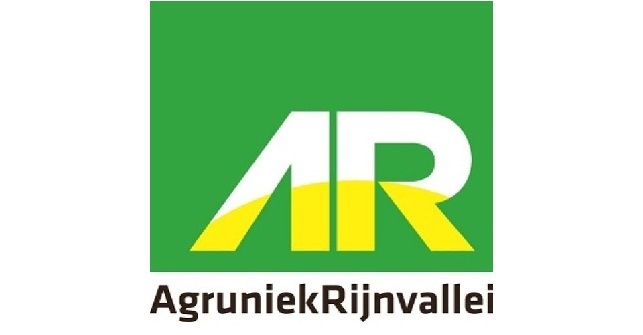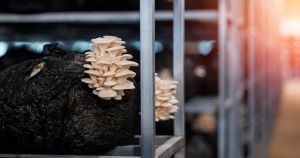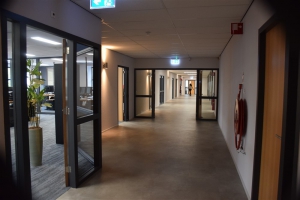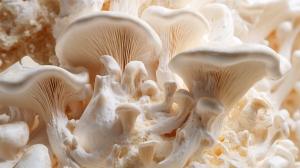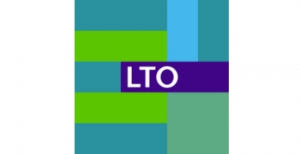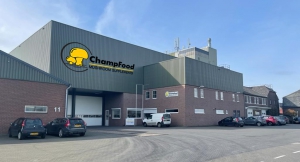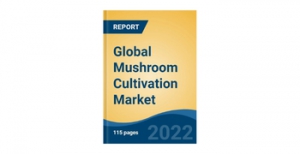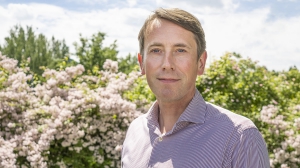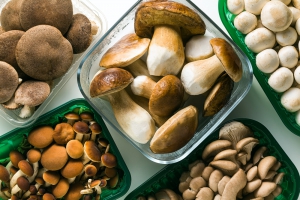As the mushroom industry continues to evolve, one of the most exciting frontiers is happening beneath the surface, literally. The development of smarter, more sustainable substrates is redefining how mushrooms are cultivated, improving efficiency, productivity, and environmental impact all at once.
The hidden power of the substrate
Every mushroom farmer knows that success begins with the substrate. It’s not just a growing medium, it’s the foundation of the entire production process. Traditionally made from agricultural by-products such as straw, manure, or sawdust, substrates are now being optimized through a combination of science and technology.
Researchers and commercial producers alike are exploring new blends that enhance nutrient availability, moisture retention, and microbial balance. These improvements allow mushrooms to grow faster, stronger, and with more consistent quality across flushes.
Data meets biology
Technology is playing a crucial role in unlocking the full potential of substrate science. Precision monitoring tools, AI-driven analysis, and smart sensors are allowing farmers to better understand what’s happening at the microbial level.
By analyzing temperature profiles, CO₂ emissions, and biological activity in real time, growers can fine-tune conditions to ensure optimal colonization and fruiting. This data-driven approach helps reduce energy costs, minimize contamination, and ultimately increase yields, all while maintaining product quality.
Sustainability from start to finish
The move toward sustainable substrates reflects a broader shift in the mushroom industry toward circularity. Agricultural waste streams, such as coffee grounds, brewery grains, and nut shells, are being repurposed as feedstock for mushroom cultivation.
After harvesting, spent mushroom substrate (SMS) is being given new life as compost, animal feed, or soil enhancer, closing the loop in a truly regenerative production model. This approach not only reduces environmental impact but also creates added value from every stage of the cultivation cycle.
Growing smarter, not harder
As consumer demand for mushrooms and functional fungi continues to rise, the industry’s ability to innovate from the ground up will define its future. The next generation of substrates, designed with precision, sustainability, and circularity in mind, will help growers meet global demand efficiently and responsibly.
In the world of mushrooms, it’s clear that what happens beneath the surface can make all the difference above it.
Published by Mushroom Matter: connecting the global mushroom community through insight, innovation, and inspiration
GTL Europe: innovation and sustainability in turnkey solutions for mushroom cultivation and composting
We, as Mushroom Matter, had the opportunity to take a look behind the scenes at GTL Europe, a leading player in the world of mushroom cultivation and composting. What struck us immediately was the company's humble and down-to-earth approach. Without too much adornment, they demonstrate professionalism and focus on delivering tailor-made solutions that help shape the future of their customers.
Mission and Vision
GTL Europe stands for innovative, tailor-made total solutions that take mushroom cultivation and composting to the next level worldwide. This goal is driven by their technical expertise and commitment to long-term customer relationships. Ruud Keunen, Sales Manager at GTL, puts it aptly: ‘Where we can add value, that's where we deliver.’ At the heart of their business is being a long-term partner and always working together to realise their customers' growth ambitions.
The origins of GTL Europe - Geraedts + Thilot + Lemmen
In 1996, Jack Lemmen saw an opportunity in the market, there were no companies offering complete turnkey solutions for compost companies and nurseries. ‘Customers were getting bigger and bigger and their needs were changing. There was more demand for custom-made systems that were not only technically sound, but also looked ahead to the future,’ says Ruud. This led to the creation of GTL Europe, which has since pioneered in providing integrated systems that perfectly fit their customers' vision.
Innovation and sustainability
During our visit, it became clear that a stable and progressive partner for the mushroom market. As Ruud puts it, ‘There is always a solution to be found, and that is exactly what we excel at. We are a stable partner that thinks with our customers and develops long-term visions.’
GTL has therefore invested heavily in automation. A good example is their picking optimisation system, which supports pickers in selecting mushrooms. Thanks to the machine's tiltable design, pickers work more ergonomically.
GTL is motivated to innovate by constant developments in the mushroom market. For example, the kilogram price of mushrooms is much higher than that of other fruits and vegetables, which increases the pressure on the production process. Staff availability also plays an important role - it is increasingly difficult to find sufficiently qualified staff for the various tasks in the process. Competitiveness also requires constant improvement and innovation to keep up with market demand. All this has prompted GTL to invest further in new technologies to improve both productivity and workload.
In addition, GTL has developed automatic packaging, which explores new packaging solutions to improve the entire production chain. This type of innovation, coupled with their experience, makes GTL a pioneer in the industry.
Turnkey projects
Another important part of GTL Europe's work is their focus on turnkey projects. From initial ideas to the complete installation of systems for mushroom cultivation and composting, GTL takes care of the entire process. Ruud explains: ‘Our projects usually last between 12 and 14 months, depending on the size and complexity. We make sure that everything is tailor-made so that it fits perfectly with the client's requirements.’ The focus on customisation ensures that GTL clients always get the best solution that works well not only now, but also in the long term.
Human relationships
What we found special is the human side of GTL Europe. Ruud and his team pride themselves on the long and stable relationships they maintain with customers. ‘We find it important that we are not just another supplier. We want to be a real discussion partner. And that's not just about technology, but mainly about understanding the customer's vision and making it a reality together.’ These long-term relationships are the backbone of the company, and it appears that GTL Europe invests in both technology and the people they work with.
Departments and expertise
GTL Europe has four main departments: Constructions, Equipment, Controls and Engineering. These departments work closely together to provide tailor-made solutions covering the entire process of mushroom cultivation and composting. From design and engineering to installation and commissioning, GTL is involved every step of the way. They offer customer-oriented designs, technical expertise and a broad knowledge of laws and regulations surrounding the sector.
We were impressed by their down-to-earth outlook, broad market knowledge and guts to invest. What also struck us is that at GTL, long tenures are the rule rather than the exception. There is also plenty of room for young talent, a great development in the mushroom sector.
A nice detail: all meeting rooms are named after the hometowns of their employees. GTL is an inspiring company in every sense and you will hear and see more from them on our platform Mushroom Matter!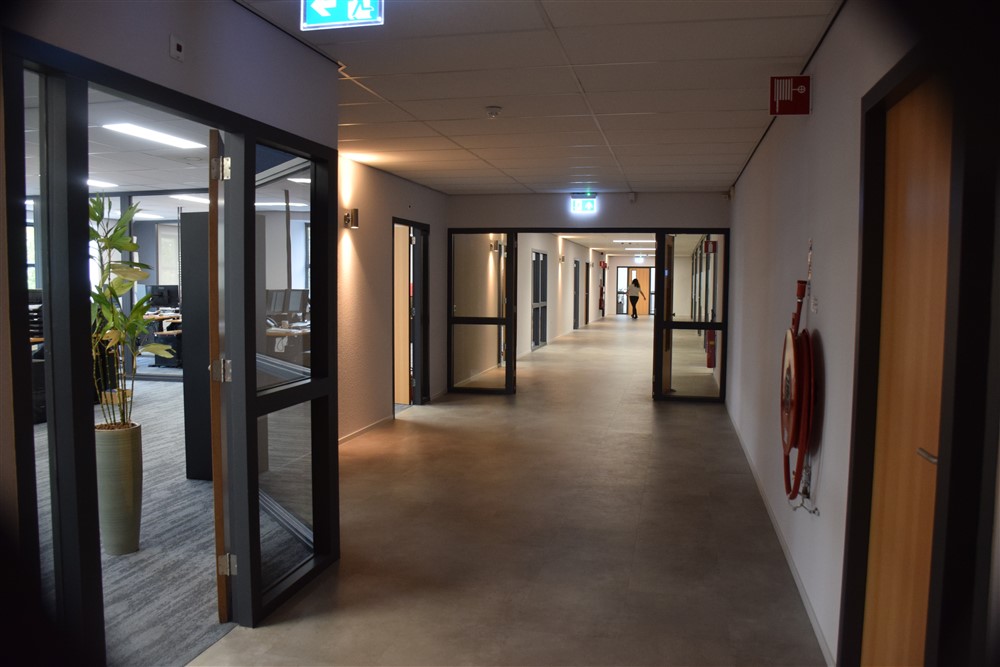
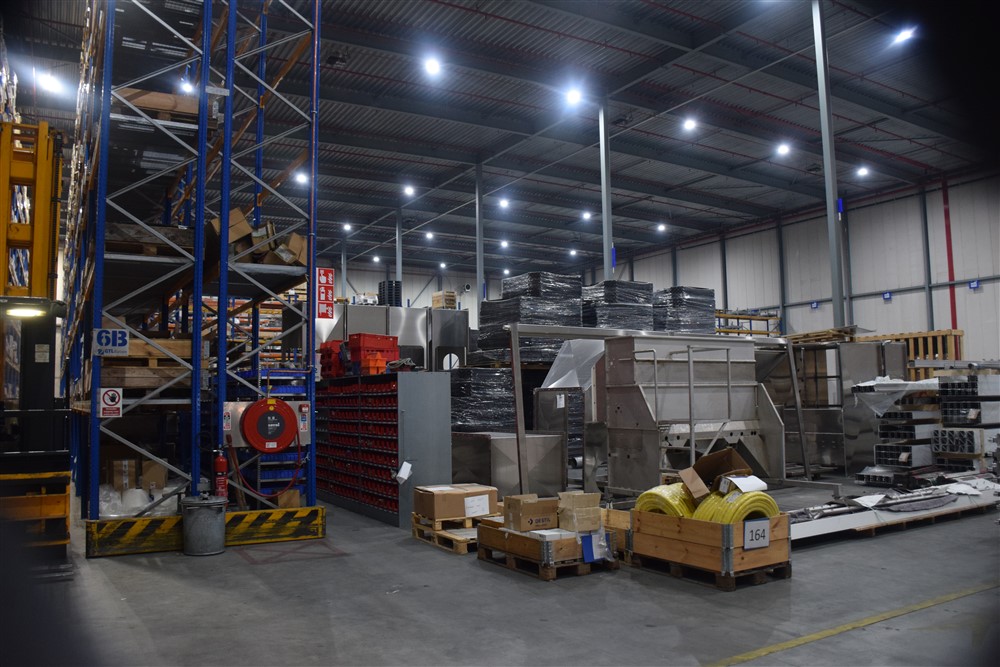
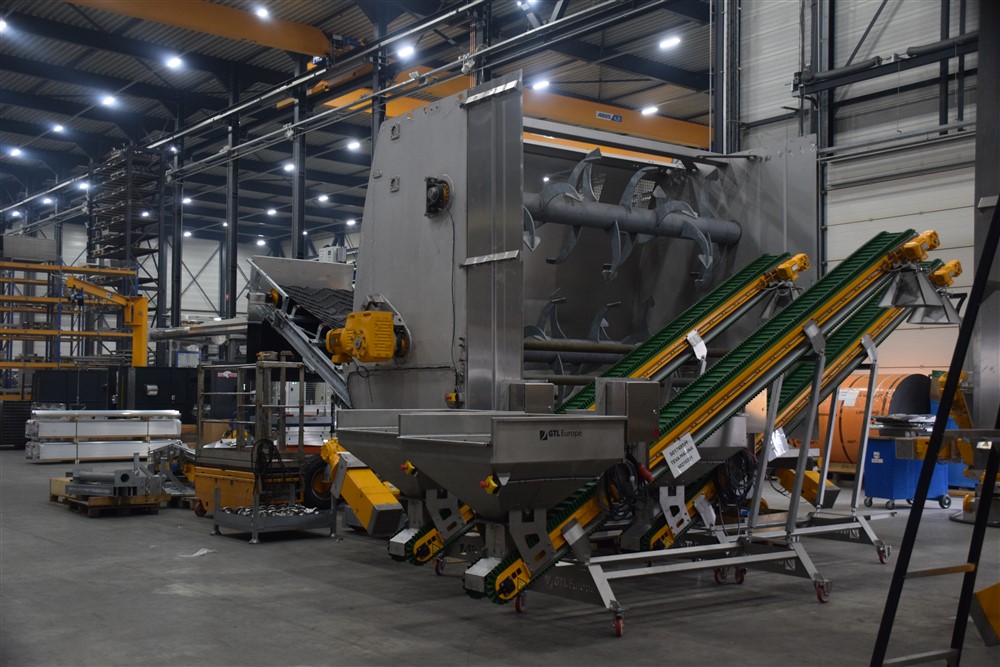
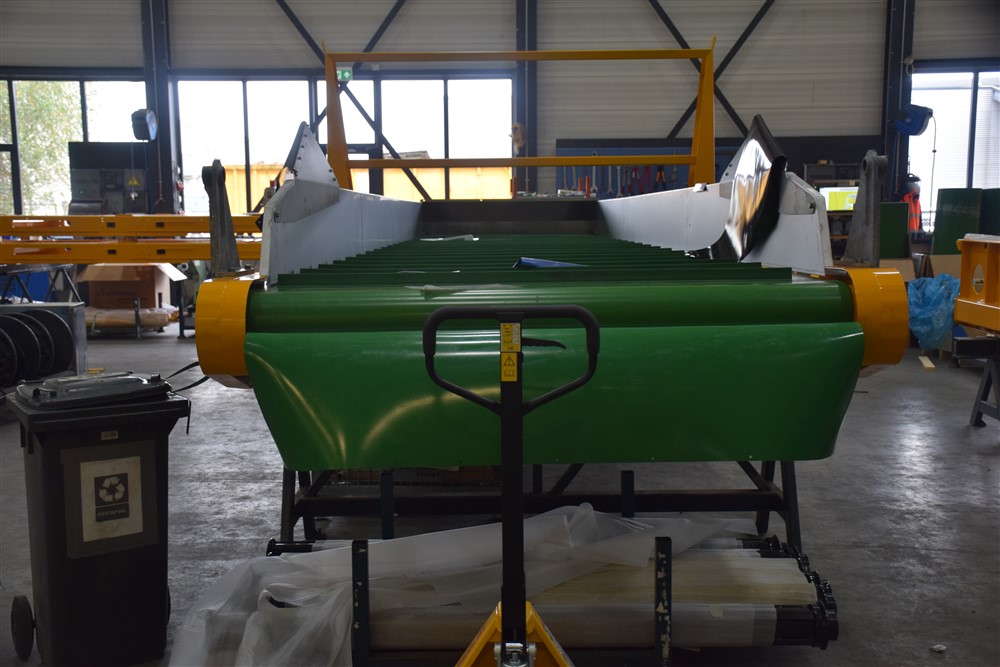
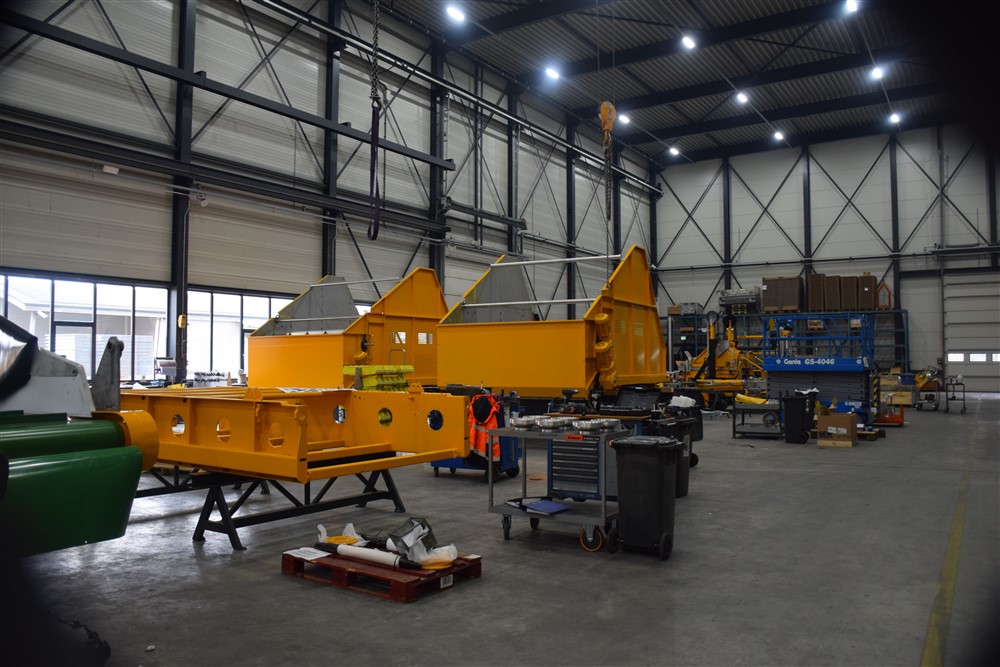
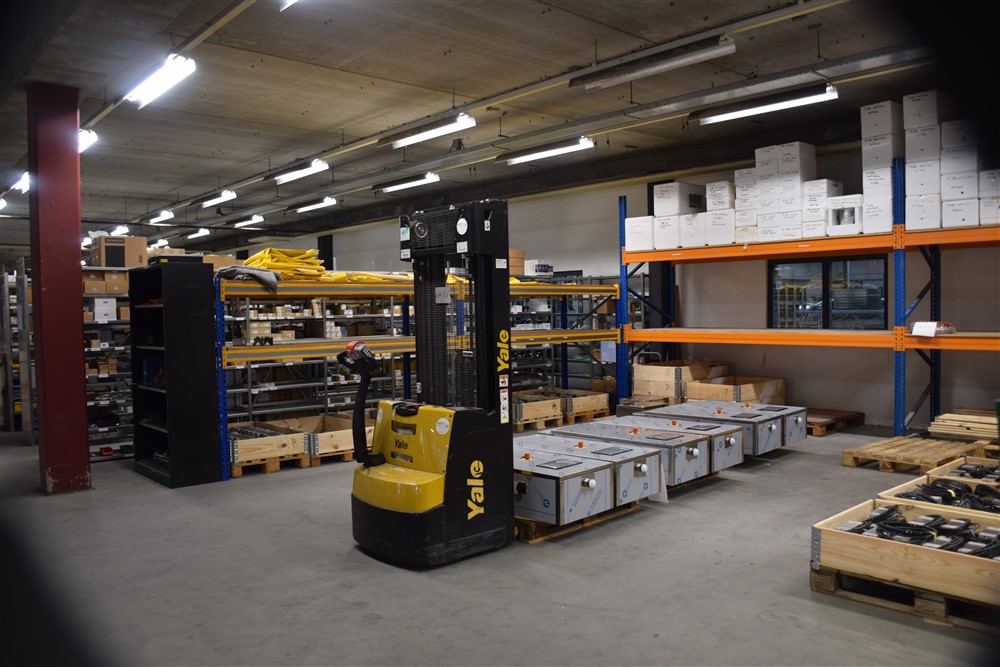
In 2014, with the joint efforts of the leaders of China and Fiji, the China-Fiji Juncao Technology Demonstration Center was established. Nine years later, the China-Pacific Island Countries Juncao Technology Demonstration Center (CPICJTDC) was unveiled in Fiji.
"The giant Juncao grass grows amazingly. It gets 5 to 8 centimeters taller per day in November," said Lin Xingsheng, team leader of the China-Fiji Juncao Technology Demonstration Center. "We have built a modern agricultural science and technology park covering an area of 3 hectares, integrating the 'plant-fungi-animal' cycle. In addition, there is also a breeding base of about 10 hectares for Juncao seeds," Lin added.
The Chinese technical personnel at the demonstration center actively explored and, based on the local climate and soil conditions, cultivated a variety of mushrooms using high-quality Juncao grass as nutrients, bringing tangible benefits to local farmers.
The establishment of the demonstration center has ended the history of Fiji's inability to grow mushrooms, making mushroom cultivation an emerging industry for prosperity, said Ateleni Kaloumaira Vuinakelo, area field officer from Fiji's Ministry of Agriculture and Waterways, who closely collaborated with Chinese experts in 2012 to introduce Juncao technology to Fiji.
Under the careful guidance of Chinese experts, the Fijian people gradually mastered the skills of cultivating over 10 varieties of edible mushrooms such as oyster mushrooms, Ganoderma lucidum, and termite mushrooms, leading to a significant increase in income.
Read the full article here.
Branch training for mushroom cultivation in progress
On behalf of LTO Mushroom Cultivation, LTO Noord has started setting up a branch training program for mushroom cultivation. "It's a great shame that there is so little attention given to this cultivation. This, while it is a perfect example of circular agriculture," states Eric Douma, portfolio holder for entrepreneurship & education at LTO Netherlands.
Despite hundreds of millions of kilograms of mushrooms being cultivated annually in the Netherlands, there hasn't been a training program for mushroom cultivation for years. "This, even though employers indicate a need for it," says Douma. With the new branch training program, both LTO Noord and LTO Mushroom Cultivation hope to meet a sector-wide demand.
The technical training started in September. Fourteen people participated in the first module. "Each session takes place at the nursery of a participant or entrepreneur from the sector," Douma explains. The focus is on management staff, migrant workers moving up to managerial positions, and cultivation supervisors.
Circular agriculture
According to chairman Tom van Wijk of LTO Mushroom Cultivation, the training should contribute to mushroom cultivation now and in the future in the Netherlands. "Dutch mushrooms are grown on horse manure, broiler manure, and straw from wheat cultivation," he explains. "This is processed through composting into a production material for various types of mushrooms."
Van Wijk continues: "The residual streams can then be utilized in other sectors to enhance soil fertility." According to him, the cultivation of Dutch mushrooms is a prime example of sustainability and circular agriculture for the whole of Europe.
Source: LTO Nederland
ChampFood, leading through innovation
ChampFood International is located in Vierlingsbeek, North Brabant. They produce ChampFood, a natural and organic mushroom supplement, which is available worldwide.
Their company was founded in 1990 by Toon Donkers and Jan Baltussen and has since then been active as producer, supplier, and distributor of ChampFood supplementary food for the mushroom industry.
From the start, the founders worked on higher productivity - and therefore bio-efficiency - of the fully grown compost, by developing an improved type of supplement.
In addition they developed a specific treatment that ensured that the added proteins were released even more equally during the flushes.
In 2008 the company moved to its current production location, enabling further growth and innovation. In addition, the team was reinforced with the arrival of Eric Vernooij, who has enriched the sales team with his knowledge of mushroom cultivation.
Technological development
Through the continuous use of the latest technology in terms of absorption requirements and based on in-depth nutritional and practical knowledge of composting and cultivation, ChampFood has become a market leader with a leading product; ChampFood now supplies a wide variety of products for supplementing the cultivation of white and brown mushrooms and other mushroom exotic species all over the world.
An important part of their success is the good relationship with their customers. Intensive cooperation with their customers enables them to adapt customised supplement compositions to the type of compost/recipe. Their customers let them know that they appreciate that flexibility. As a result, they have developed a large number of customized recipes for their customers over the years.
Challenge
A rapidly growing world population that demands more food is a difficult issue. Because the mushroom sector is relatively flexible and can therefore respond well to these problems, ChampFood sees many developments in mushroom cultivation. Fortunately, a lot of knowledge is shared within the mushroom industry, often originating from Dutch roots.
The production of mushrooms is possible with raw materials such as straw, horse, and chicken manure and the harvest can take place both manually and mechanically. Innovative hand harvesting systems are increasing, although they require high investments. The costs of raw materials and energy are also increasing. It is therefore important that the harvest produces enough to compensate for investments and costs.
The importance of efficiency
In the future, the viability of a production company will no longer be determined solely by the maximum number of kilos of mushrooms per m2, but also by keeping the costs per cultivation area as low as possible, so that the highest possible return can be generated. This requires the highest possible bio-efficiency of the substrate. Supplementing the substrate will therefore become even more essential. It now appears that the worldwide production of mushrooms is 15% to 20% higher when using a supplementary substrate. ChampFood is convinced that supplementation will therefore play an even more significant role, especially since the cost of supplement is less than 5% of the total costs per m2 of cultivation area (not even taking into account energy and labor costs). This makes the application of supplements a very healthy and solid investment.
ChampFood would like to welcome you during the Mushroom Days at their stand number 53.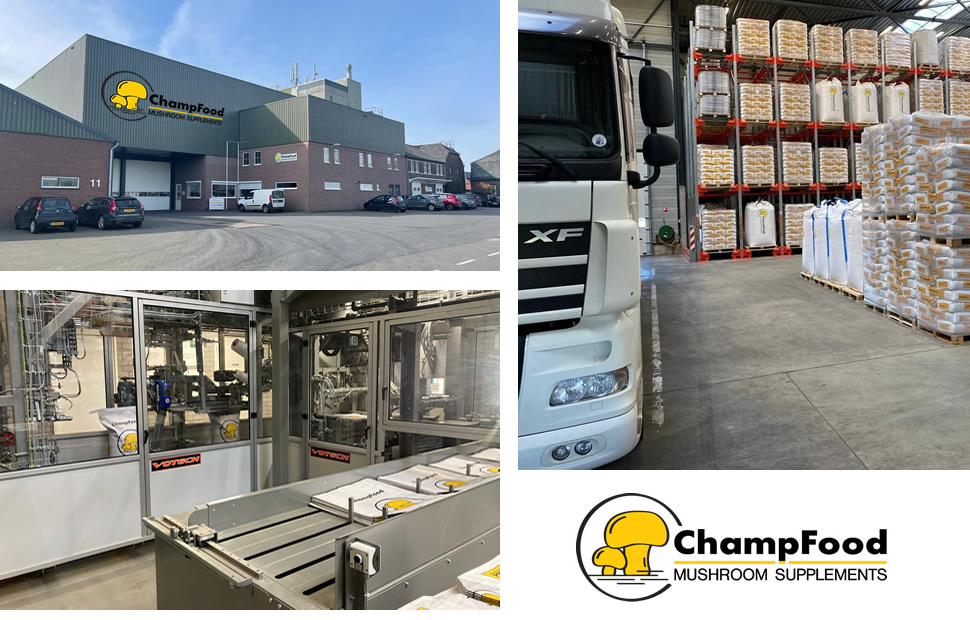
Control of Phorid flies (Megaselia halterata) in mushroom cultivation – the late summer is becoming hotter and longer
Phorid larvae (Megaselia halterata) are obligate mycelial feeders therefore, the adult flies are not attracted to oviposit in the compost until after spawning. The up to 6 mm long larvae feed on the growing mushroom mycelium but rarely on the fruiting body itself. They can be distinguished from sciarid larvae by the absence of the black head, and they develop more rapidly into a pupa.
The adult fly can be distinguished from the sciarid fly by the short antennae and by its rapid, jerky, running movement. Adult phorids act as a vector for dry bubble. 75 flies per m2 may already cause an outbreak of the disease. Phorid flies are unable to fly when the temperature falls below 12°C (54°F). In the past they have rarely infected mushroom houses after late fall. As there are now more and more warm days into November, this period is prolonged.
e-nema comes with a solution to control phorids. If you wish to know more, please visit their website.
The global mushroom cultivation market is expected to grow at a steady rate in the forecast period, 2023-2027. Factors such as growing per capita mushroom consumption and the rise in awareness about the multiple benefits of mushroom consumption are driving the market growth. Surge in demand for vegan and natural food in the diet and increasing health-consciousness among consumers are the prominent factors expected to accelerate the demand for the global mushroom cultivation market.
Also, rise in the efforts by the market players to adopt the latest technologies will boost the commercial production of mushrooms, which is expected to create numerous growth opportunities for the market players in the global mushroom cultivation market during the forecast period.
Global mushroom cultivation is segmented based on type, raw material, phase, form, application, region, and company. Based on regional analysis, Asia-Pacific is expected to hold a significant market share for the next five years, 2023-2027. China is the largest producer and consumer of mushrooms across the world . An increase in the cultivation of mushrooms along with the increasing consumption in the region are expected to fuel the demand for mushrooms in the country. Also, the adoption of the latest technology for mushroom cultivation by the market players is expected to create numerous growth opportunities for the growth of the global mushroom cultivation market in the forecast period.
Major players operating in the mushroom cultivation market are Smithy Mushrooms Ltd., Rheinische Pilz Zentrale GmbH, Monaghan Mushrooms Ltd, Walsh Mushrooms Group, South Mill Mushrooms Sales Inc., Hirano Mushroom LLC, Gourmet Mushrooms, Inc., Fresh Mushroom Europe NV, L F Lambert Spawn Co, Polar Shiitake Oy, and others.
Please read the full article here.
Source: Research And Markets
The first person to introduce the cultivation of mushrooms in the town was William Swayne, a Quaker who had been growing carnations for years. Swayne, a mushroom enthusiast, began growing mushrooms to utilize space under elevated beds. After importing mushroom spawn from Europe, he began experimenting. Today, Kennett holds an annual Mushroom Festival in early September.
Throughout the years, the mushroom industry in Kennett Square has grown to an international level. The city has a long history of integrating new immigrants into its economy. Many immigrants in the past have been Quakers, while others have been Latino and Guatemalan. Today, the city is home to a robust food supply, robust healthcare system, and a thriving mushroom industry.
Kennett Squares Mushroom Industry
Today, 65% of all the mushrooms in the United States are grown in the town of Kennett Square, PA. Other towns have indeed produced mushrooms, but only Kennett Square has the title of The Mushroom Capital of the World. However, a little-known fact is that the town became the Mushroom Capital of the World by accident, as settlers from Italy and Mexico settled the area after the Quakers.
Please read the full article here.
Source: Phillybite
New sales manager for the use of nematodes in mushroom cultivation at e-nema GmbH Germany
Dear All!
My name is Ulrich Tiemann and since April this year I started working for e-nema. I received a very cordial welcome, plus a lot of support and training from the e-nema team.
It is great working here. Having a background in agriculture, international food trading and sales, I am working myself into the mushroom industry now. I do look forward to getting to know you. Through my work, I aim to support you and add value to the mushroom industry with the help of entomopathogenic nematodes, which e-nema produces at an industrial scale.
Hope meeting you soon!
In 2020, the Dutch Food and Consumer Product Safety Authority (NVMA) conducted targeted inspections of dark cultivations: mushroom cultivation and chicory forcing. Ultimately, 93 percent complied with the rules regarding the use of cultivation protection products. That is close to the target of 95 percent compliance. But this end result was only achieved after inspected companies were given the opportunity to repair imperfections. 10 of the 27 inspected companies did this to succeed. Despite this, there were also two companies that did not have their affairs in order.
NVWA inspectors conducted targeted farm inspections in 2020 on 27 farms with dark cultivations (17x for mushrooms). The focus during these inspections was on the use of plant protection products and biocides.
Imperfections in administration
The results of these targeted inspections show that almost 93 percent of the inspected companies follow the rules regarding the use of plant protection products. This 93 percent is approaching the target of at least 95 percent compliance. However, this favorable final picture was only achieved after the inspected companies took advantage of the opportunity to repair imperfections. This happened at a dozen companies, which mostly involved administrative matters. The most common deficiencies related to the cultivation protection monitor, the biocides administration and the return of expired products.
Twice on report
In addition, there were still two companies where enforcement action was taken. This means that a report of findings has been drawn up by the inspectors. A written warning was also issued once, because the company had not had its affairs in order according to regulations. An administrative fine may be imposed on the basis of a report of findings.
High recovery rate
Although the final picture of 93 percent compliance produces a positive picture, the NVWA finds the number of companies that had to repair deficiencies quite high. The NVWA is therefore exploring possibilities to increase awareness of the administrative obligations among growers.
Source: Nederlandse Voedsel- en Waren Authoriteit (NVMA), in DUTCH.




